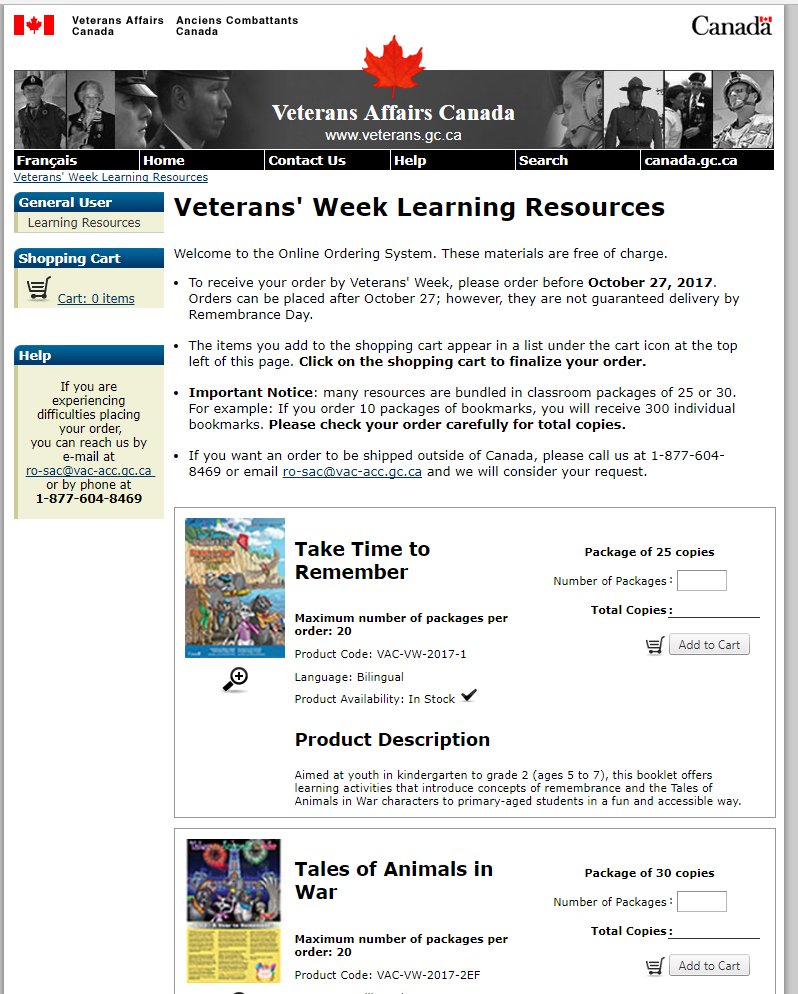
Fostering Remembrance is a part of everything we do. Through The Royal Canadian Legion’s longstanding Annual Poster and Literary Contests, Canadian school children honour Canada’s Veterans through creative art and writing, and help perpetuate Remembrance.

Poster and Literary Contests
The contests are divided into four categories:
- Senior: Grades 10, 11, 12
- Intermediate: Grades 7, 8, 9
- Junior: Grades 4, 5, 6
- Primary: Grades 1, 2, 3 (Poster Contest only)
The Poster Contest is divided into two categories: colour and black and white. The Literary Contest is divided into two categories: essay and poem. Entries are submitted at the Branch level and winning entries proceed to the provincial and then national level.
Prizes
The winning entries for each category at the national level are displayed at the Canadian War Museum from July 1 to May 1 of the following year. For the Poster Contest, the second place winners, and those receiving an honourable mention, are displayed in the foyer of the House of Commons during the Remembrance period in November.
For the senior winners in the four contests (two posters, one essay and one poetry), the Legion sponsors a trip to Ottawa to attend the National Remembrance Day Service. There, the winners place a wreath on behalf of the youth of Canada as well as have an opportunity to meet and visit with the Governor General.
Entering and regulations
Students can enter as many contests as they wish, but can submit only one entry per category.
Local Legion Branches determine the Poster and Literary Contests deadlines for entries. To participate, schools should contact their local Legion in September for information. Contact your local Branch for details.
Download the Youth Education brochure
Download the application form
Judging
Initial judging takes place at the community level by volunteers at local Legion Branches. The winning entries are then judged at the provincial level. The winners at this level are sent to Ottawa where the national winners are declared. The winnin
g entries are published in the Winners Booklet which is sent to all Branches and available to schools.
Download the Judging Guidelines
Past winners
2017 | 2016 | 2015 |2014 | 2013 | 2012 | 2011 | 2010 | 2009 | 2008 | 2007 | 2006 | 2005 | 2004 | 2003
The Legion encourages schools to contact their local Legion Branch for details on coordinating the Poster and Literary Contests.



 Indigenous Perspectives Timeline
Indigenous Perspectives Timeline






 The popular Veterans’ Week materials have been entirely updated for 2016. New editions of the
The popular Veterans’ Week materials have been entirely updated for 2016. New editions of the
 http
http